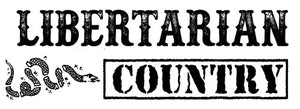Written by our friend The Pholosopher
"The hidden history of gun control in America. Since the early days of colonial America, the right to bear firearms has been a foundational norm. However, often missed, is the fact that this principle was not applied to those deemed unequal, or untrustworthy, by governments.
As a result, throughout America's history, discriminatory restrictions on firearm ownership have been racially motivated.
Colonial America
In the 16th and 17th centuries, almost all of the colonial governments required adult white men to possess firearms and ammunition, and to carry them on their persons when attending public gatherings; such as town meetings and church.
While white male ownership was encouraged, most colonial governments did, however, restrict blacks from possessing firearms.
1857,the Dred Scott case
In one of the most prominent cases on racial discrimination U.S. Supreme Court chief justice Taney ruled against giving the descendants of African American slaves the rights of citizenship to sue in federal court.
When deciding whether slaves were considered citizens,Taney noted that if the descendants of African American slaves were given full citizenship, they would have the ability, and I quote 'to keep and carry arms wherever they went.' The Chief Justice denied citizenship on racial grounds as the rights of citizenship, especially the right to travel armed, was considered too much of a threat against the state--and racist politicians who wanted to continue abusing black Americans via the legal system

Support The Pholosopher- Click Here to Use Her Affiliate Link to Order This Tee!
1860's Black Codes
After the Civil War States passed laws known as the 'Black Codes' which disarmed and economically blackballed African Americans to perpetuate slavery. The special report of the Paris 'anti-slavery Conference of 1867' found that freed men in some states were forbidden to own or bear firearms and, thus, were rendered defenses against assault. Through new laws from racist politicians tyrannical groups could continue to control freed men through threats of violence.
Disproportionate Effect of Laws in the States
In addition to outright bans, laws were passed with the intent to disproportionately affect black populations. Disproportionate impact was a political tool of persecution through which politicians could curtail black person's from owning firearms while leaving the white population mostly unaffected.
As most black persons in America did not have the chance to build wealth, due to slavery and harsh discrimination, any regulations based on wealth or legal system access more heavily affected the newly freed African-American population.
One such law was Tennessee's 'Army and Navy law of 1879' which banned the sale of belt or pocket pistols or revolvers or any other kind of pistols except army or navy pistol Brands, which were some of the most costly models at that time.
The law of effectively outlawed smaller guns such as derringers and small caliber Rimfire revolvers; the kind of handguns that would be more accessible to lower-income blacks. New York pass the Sullivan act in 1911 which required individuals to obtain a license to carry a handgun.
The law, still in effect today, gives the discretion of granting a license to the whims of police. The law was originally aimed at Italian and Irish immigrants, who were considered lower-class persons by those in power, but also disproportionately affected blacks in New York.
In 1941, Florida Justice Buford concurred in overturning a man's conviction for having a pistol in his car, noting that laws against having a pistol and a carriage without a license were built upon racist grounds.
Buford noted "the original Act of 1893 was passed when there was a great Great influx of negro laborers in the state drawn here for the purpose of working and turpentine and lumber camps. The same condition existed when the Act was amended in 1901 and the Act was passed for the purpose of disarming the Negro laborers."
1960s Civil Rights Movement
Black empowerment groups took up arms to defend their communities during a time when police brutality was on the rise, despite other civil rights reforms. The Black Panther Party, whose members carried weapons to guard against police brutality, marched to the California Capitol building in Sacramento in 1967, peacefully carrying firearms.
California's then Governor Ronald Reagan signed the Mulford act shortly after, prohibiting the open carrying of weapons in public places. This law was a direct response to African Americans openly carrying weapons at a peaceful protest. This gun ban was another instance of law appearing to be neutral on its face, but having an intentionally disproportionate impact against black communities.
In conclusion, people who are economically and socially disadvantaged are burdened by gun control laws and they suffer. As did African-Americans historically, and as do all those today who are persecuted by the state over victim-less activity.
Don't let the government take away the right to the most precious first line of self-defense: the right to bear arms. Without the right to defend ourselves and our loved ones, with sufficient stopping power, we will become slaves to criminals. End discrimination against individual liberty, support freedom for all!"
If you enjoyed this article, you may also like 'Shooting Guns in My Therapy'


